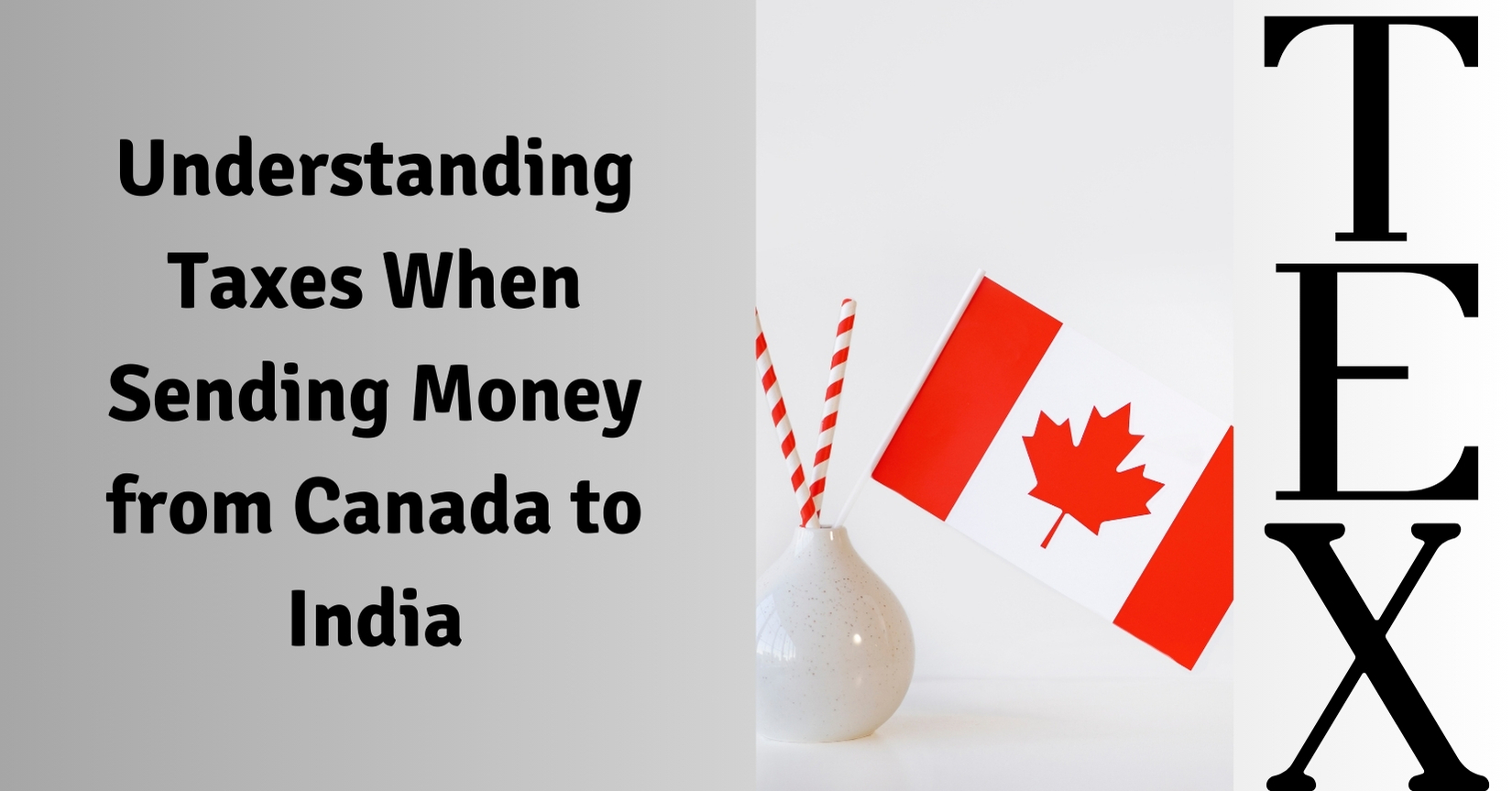Understanding Taxes When Sending Money from Canada to India

Many people need to send money from Canada to India regularly. It’s important to know how taxes work for these transfers. Since each country has different tax rules, it can be confusing to understand what you need to do. Let’s look at how taxes work when sending money between these countries.
Do You Pay Taxes When Sending Money from Canada to India?
Here’s what you need to know about taxes in both countries:
In Canada:
- Simply sending money isn’t taxed
- But make sure you’ve already paid taxes on the money you’re sending
- If you’re giving money as a gift, you don’t need to pay extra taxes, no matter how much you send
In India:
- When someone gets money from abroad, they don’t pay tax right away
- But if it’s a large amount, especially a gift, they need to tell the tax office
- Money gifts from family members usually don’t get taxed
- Big gifts from people who aren’t family might be taxed
What Tax Rules Apply to Money Transfers?
Different rules apply depending on who’s sending and receiving the money.
For People Sending Money (in Canada):
- Personal transfers to help family or for personal use usually don’t need extra taxes
- If you’re also a US citizen living in Canada, you need to follow FATCA rules, which means telling the US about your foreign accounts
For People Receiving Money (in India):
- Big amounts need to be reported to avoid trouble
- If the money is from work or investments, it might be taxed
- Everything should be mentioned in tax returns
How Do These Transfers Affect Your Taxes?
For Senders in Canada: You need to report:
- Money from your job (salary, bonus)
- Money from investments (dividends, interest)
- Money from your business
- Keep good records showing where the money came from and why you sent it
For Recipients in India: Things to check:
- Gifts over ₹50,000 from non-family members might be taxed
- Money earned from investing the transferred funds gets taxed
- Money sent for personal use (like family support) usually isn’t taxed
- Keep all documents showing where the money came from
Conclusion
While sending money between Canada and India can seem complicated tax-wise, knowing the basic rules helps make it easier. It’s important to:
- Know the rules about taxable income and gifts in both countries
- Keep good records
- Follow all the rules
It’s always a good idea to talk to tax experts in both countries to make sure you’re doing everything right. Consulting NRI tax consultants in Canada can help you navigate complex tax laws, avoid unnecessary liabilities, and optimize your financial planning for seamless cross-border transactions.
FAQs’
1. Do I need to report large money transfers from Canada to India?
Ans- In Canada, you don’t need to report transfers if you earned the money legally and paid taxes on it, but keeping records is smart. In India, amounts over ₹50,000 must be reported under FEMA rules.
2. How does Canada’s tax office (CRA) handle international money transfers?
Ans- The CRA doesn’t tax the transfer itself, but they want to make sure you’ve paid taxes on the money before sending it. They watch transfers to make sure people follow tax rules.
3. What about gift taxes when sending money from Canada to India?
Ans- Canada doesn’t have gift taxes, so you can send gifts without extra tax if you’ve already paid taxes on the money. In India, gifts from family aren’t usually taxed, but gifts over ₹50,000 from non-family might be taxed.
4. How do Indian tax authorities view money received from Canada?
Ans- Usually, they don’t tax money received from abroad unless it’s earned in India. Family gifts are tax-free, but gifts over ₹50,000 from non-family might be taxed. Keep documents showing where the money came from.
5. Is there an agreement between Canada and India to avoid double taxation?
Ans- Yes, there’s an agreement called DTAA that stops income from being taxed twice. If you pay tax in one country, you might get credit in the other. Ask a tax expert about how this works.
6. Do I need to pay taxes if I send money to support my family in India?
Ans- No, if the money is for family support or personal use, it’s usually not taxed in either country. However, you should keep records to prove the purpose of the transfer.
7. What documents should I keep when sending money from Canada to India?
Ans- You should keep proof of the source of the money, like pay slips or bank statements, and documents showing why you sent the money, such as a letter stating it’s for family support.
8. Are there any limits on how much money I can send from Canada to India?
Ans- There are no legal limits, but if you send large amounts, both Canadian and Indian authorities may ask for more details to ensure the money complies with tax laws.
9. Will the money I send to India be taxed if it’s invested?
Ans- Yes, if the money is invested in India and earns interest or other income, the recipient will need to pay taxes on those earnings.
10. Do I need to tell Canadian authorities about large international transfers?
Ans- Yes, if you’re sending large amounts, Canadian authorities like the CRA may want to ensure the money has been properly taxed. You should report it if asked, and keep documentation to avoid any issues.



